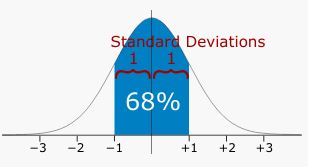Making your mortgage payment is one of the most significant financial obligations you’ll have as a homeowner. Understanding your payment options and how to save money can help you manage your finances more effectively. In this guide, we’ll explore the different ways to make mortgage payments and provide tips for saving money on interest and paying off your mortgage faster.
Introduction
Your mortgage payment is likely one of your largest monthly expenses, and understanding your payment options and how to save money on interest can make a big difference in your financial well-being. In this guide, we’ll explain how mortgage payments work and explore different payment options, as well as provide tips for saving money and paying off your mortgage faster. Whether you’re a new homeowner or have been making mortgage payments for years, this guide can help you manage your finances and achieve your homeownership goals.
Understanding Mortgage Payments
A mortgage payment is a monthly installment made to your mortgage lender to repay your home loan. The payment includes two components: principal and interest. The principal is the amount of money you borrowed, while the interest is the cost of borrowing that money.
Your mortgage payment may also include other expenses, such as property taxes, homeowners insurance, and mortgage insurance. These additional expenses are usually rolled into your monthly payment and held in an escrow account until they are due.
Your mortgage payment is determined by several factors, including your loan amount, interest rate, loan term, and any additional expenses. Making your mortgage payment on time and in full is essential to maintaining good credit and avoiding foreclosure.
Understanding your mortgage payment options and finding ways to save money on interest and fees can help you manage your finances more effectively and achieve your long-term financial goals.
Payment Options
There are several different payment options available for making your mortgage payments. Here are some of the most common:
- Traditional Monthly Payments: This is the most common payment option. You make a fixed payment each month that includes both principal and interest, as well as any additional expenses like property taxes and insurance.
- Bi-Weekly Payments: With bi-weekly payments, you make a payment every two weeks instead of once a month. This results in 26 payments per year, which is the equivalent of making 13 monthly payments instead of 12. This can help you pay off your mortgage faster and save money on interest over time.
- Extra Payments: Making extra payments towards your mortgage principal can also help you save money on interest and pay off your mortgage faster. You can do this by adding an additional amount to your monthly payment, or by making a lump sum payment when you have extra money available.
- Lump Sum Payments: If you come into a large sum of money, such as an inheritance or a bonus from work, you can make a lump sum payment towards your mortgage principal. This can help you pay off your mortgage faster and save money on interest over time.
It’s important to note that some lenders may charge fees or penalties for making extra payments or paying off your mortgage early. Be sure to check with your lender before making any additional payments or paying off your mortgage early.
Tips for Saving Money on Mortgage Payments
Saving money on mortgage payments can help you manage your finances more effectively and achieve your long-term financial goals. Here are some tips for saving money on your mortgage payments:
- Refinancing Your Mortgage: Refinancing your mortgage can help you get a lower interest rate, which can lower your monthly payments and save you money of your loan. Be sure to consider any fees associated with refinancing before making a decision.
- Making Extra Payments: Making extra payments towards your mortgage principal can help you pay off your mortgage faster and save money on interest over time. Even small amounts can make a big difference of your loan.
- Shortening Your Loan Term: Shortening your loan term can help you save money on interest over time, although it will result in higher monthly payments. Consider refinancing to a shorter term if you can afford the higher payments.
- Avoiding Private Mortgage Insurance (PMI): If you have less than 20% equity in your home, you may be required to pay private mortgage insurance (PMI), which can add hundreds of dollars to your monthly payment. Consider putting more money down or refinancing once you have enough equity to avoid PMI.
By using these tips and exploring different payment options, you can save money on your mortgage payments and achieve your long-term financial goals.
Conclusion
Understanding your mortgage payment options and finding ways to save money on interest and fees is essential to managing your finances effectively and achieving your long-term financial goals. By exploring different payment options, making extra payments towards your mortgage principal, and considering refinancing, you can save money on your mortgage payments and pay off your loan faster. Be sure to check with your lender before making any additional payments or refinancing, and always make your payments on time and in full to maintain good credit and avoid foreclosure.
Also Read:
- Conditional Mortgage Approval: Tackling The Common Questions
- Are Home Warranties Worth It?
- Understanding How Pawning Business Works
- 7 Ways To Improve Your Credit As Quickly As Possible

Hello, I am Tanisha Kriplani, graduated in computer science from Delhi University. I am passionate about web content writing and have a strong interest in Data Analytics and Data Engineering.












